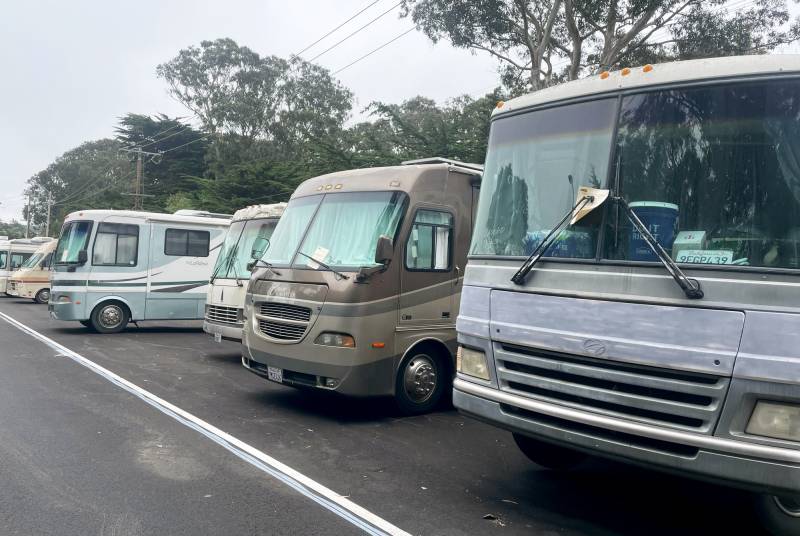Leonor Deleon, who lives with her husband and two daughters, said she was a nanny and lived in an apartment with her family. But when the pandemic started, work dried up for her and her husband, and a year later, they lost their home. The RV that the family originally bought to go camping became their home.
“I don’t know why, but I feel like after the pandemic, it’s been very difficult to get back on my feet,” Deleon said in Spanish. She added that many of her neighbors from her old apartment building also ended up on the street after the start of the pandemic.
Deleon said she and the other RV residents, whom she considers a tight-knit community, are only looking for a safe place to live while they work to save up enough money for an apartment again, and city efforts to fine them or tow their vehicles only make that more difficult.
When city officials descended on the encampment Thursday to deliver the 72-hour notices to clear out, they also towed some vehicles without valid registrations.
Jamilet Lira said her son was at work when the city came, and she was unable to find the registration for his RV. She said she was only able to grab some clothes and blankets before the vehicle was taken away, along with many of their belongings and immigration papers.
“They gave me very little time,” Lira said in Spanish. “And my neighbors helped me. If I had been alone, I probably wouldn’t have grabbed anything.”
City officials said they are offering housing, shelter and other services to residents of the encampment.
Lira said she was offered space in a shelter, but for an unspecified amount of time and that she could not take her adult children with her. She said she is still recovering after being struck by a vehicle and needs her kids’ help around the house.
Members of La Raza, the outreach organization, also said the resources offered are insufficient.
Gabriel Medina, the executive director of La Raza, said he hopes the city can ensure housing vouchers get into the hands of encampment residents. The voucher program acts like a subsidy, covering the housing costs for two years.

